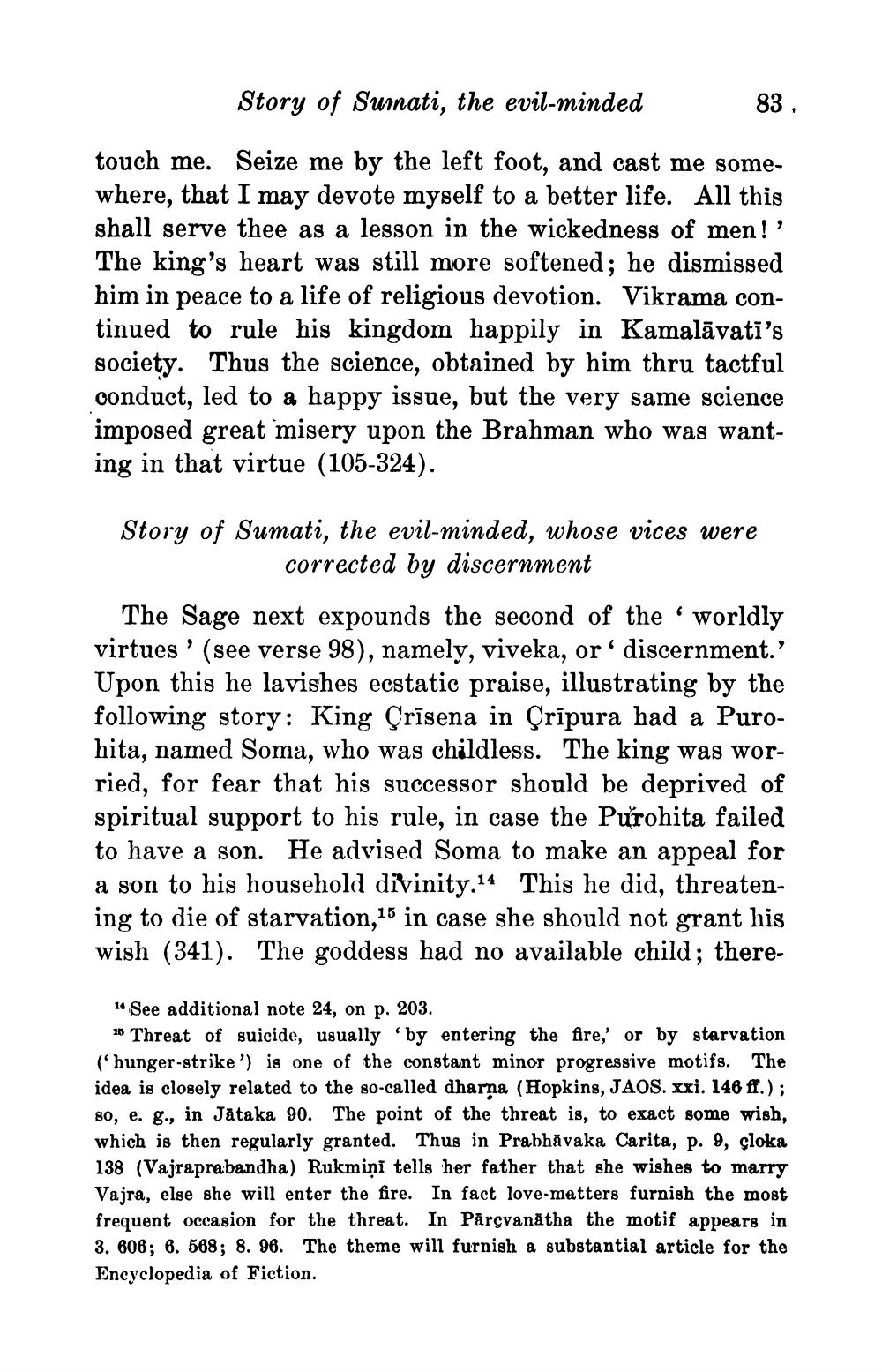________________
Story of Sumnati, the evil-minded
83 ,
touch me. Seize me by the left foot, and cast me somewhere, that I may devote myself to a better life. All this shall serve thee as a lesson in the wickedness of men!' The king's heart was still more softened; he dismissed him in peace to a life of religious devotion. Vikrama continued to rule his kingdom happily in Kamalāvati's society. Thus the science, obtained by him thru tactful oonduct, led to a happy issue, but the very same science imposed great misery upon the Brahman who was wanting in that virtue (105-324).
Story of Sumati, the evil-minded, whose vices were
corrected by discernment The Sage next expounds the second of the worldly virtues' (see verse 98), namely, viveka, or' discernment.' Upon this he lavishes ecstatic praise, illustrating by the following story: King Crīsena in Crīpura had a Purohita, named Soma, who was childless. The king was worried, for fear that his successor should be deprived of spiritual support to his rule, in case the Purohita failed to have a son. He advised Soma to make an appeal for a son to his household divinity.14 This he did, threatening to die of starvation,15 in case she should not grant his wish (341). The goddess had no available child; there
1 See additional note 24, on p. 203.
15 Threat of suicide, usually by entering the fire,' or by starvation ('hunger-strike') is one of the constant minor progressive motifs. The idea is closely related to the so-called dharna (Hopkins, JAOS. xxi. 146 ff.); 80, e. g., in Jätaka 90. The point of the threat is, to exact some wish, which is then regularly granted. Thus in Prabhåvaka Carita, p. 9, çloka 138 (Vajraprabandha) Rukmini tells her father that she wishes to marry Vajra, else she will enter the fire. In fact love-matters furnish the most frequent occasion for the threat. In Pārsvanātha the motif appears in 3. 606; 6. 568; 8. 96. The theme will furnish a substantial article for the Encyclopedia of Fiction.




